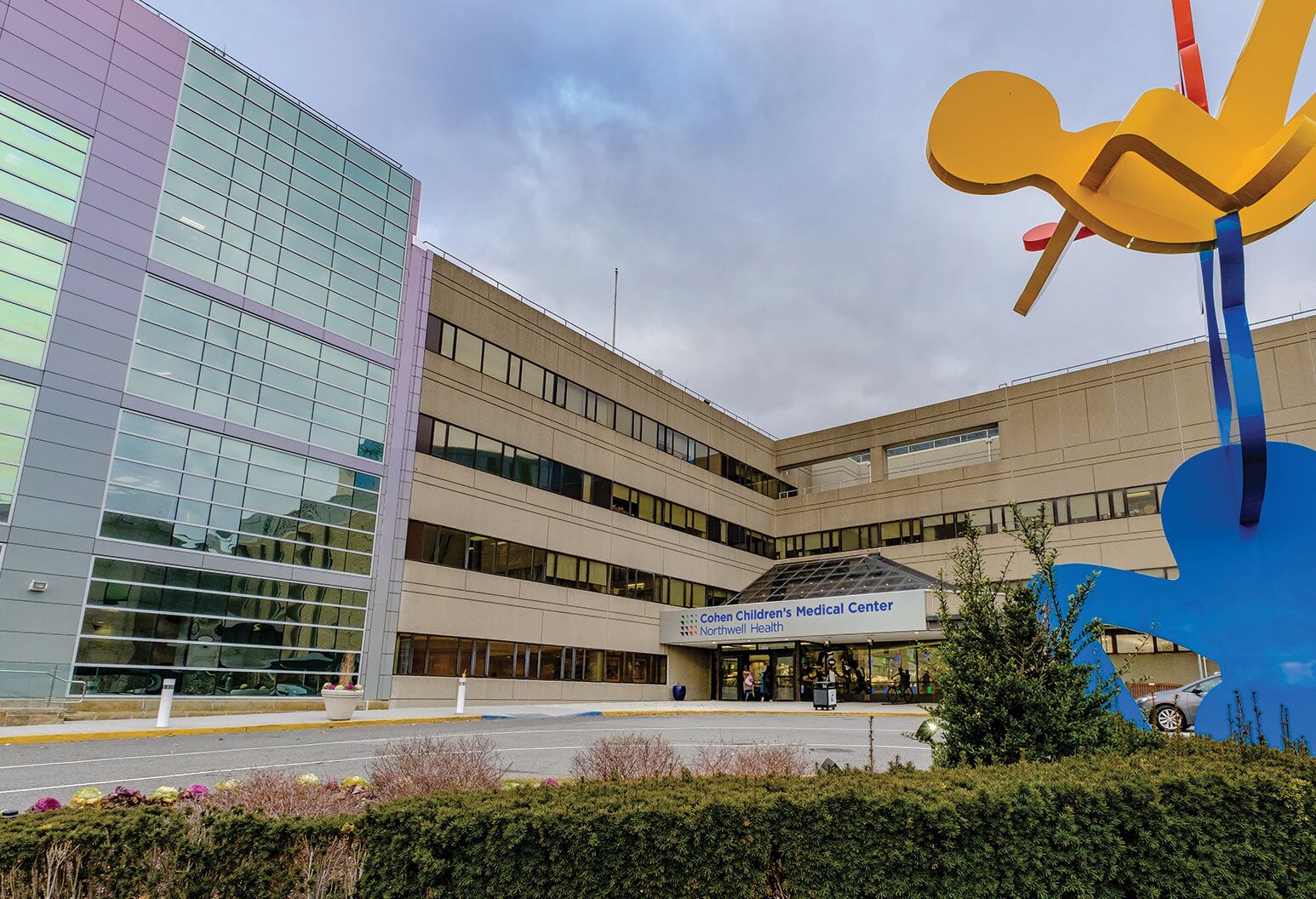Pediatric anesthesiology

About us
Bringing your child in for surgery is a big moment, and we're here to make it as smooth and positive as possible for both of you. At Cohen Children's Medical Center, our expert pediatric anesthesiologists provide the highest level of care for every child, from routine procedures to complex cases. We focus on making your child's surgery and recovery as comfortable and stress-free as possible, so you can rest assured knowing they're in the hands of compassionate experts who specialize in caring for children.
Pediatric anesthesiology is available 24/7 for emergencies.
Frequently asked questions
What is a pediatric anesthesiologist?
A pediatric anesthesiologist is a doctor who specializes in providing anesthesia care to infants, children and adolescents. Pediatric anesthesiologists undergo additional specialized training beyond general anesthesiology to focus on the unique physiological and psychological aspects of pediatric patients. Children differ from adults in terms of their anatomy, physiology and response to anesthesia. This specialized expertise is essential to ensure safe and effective anesthesia care. Pediatric anesthesiologists also play a crucial role in managing pain control during and after surgery, ensuring your child's comfort and well-being.
What are the different types of anesthesia?
General: General anesthesia is a medical state induced to make you unconscious and unresponsive to painful stimuli during surgical or medical procedures. It is a controlled and reversible state of unconsciousness that ensures you feel no pain, have no awareness, and do not remember the procedure.
Throughout the anesthesia administration, your vital signs, including heart rate, blood pressure, and oxygen saturation are closely monitored to ensure your safety. The dosage and choice of anesthetic agents are tailored to each patient, considering factors such as age, medical history, and the type of surgery being performed.
Regional: Regional anesthesia refers to the administration of anesthetic agents to a specific part of the body, numbing only the targeted region and providing pain relief during surgical or medical procedures. Unlike general anesthesia, regional anesthesia allows you to remain awake and alert while blocking sensations in a specific area. Examples of regional anesthesia include IV sedation, peripheral nerve blocks, epidural anesthesia, spinal anesthesia, and topical and local anesthesia.
Is it safe for my child to receive anesthesia?
Yes, anesthesia is considered safe for children when administered by trained and experienced medical professionals. Anesthesiologists will consider your child’s medical history, current health status and any potential risks or complications before determining the appropriate type and dosage of anesthesia to administer. There are some potential risks and side effects, as with any medical intervention. These may include allergic reactions, breathing difficulties, and adverse reactions to specific medications. The risk of complications is usually low, and the benefits of the procedure often outweigh the potential risks.
What information about my child is important for the anesthesia team?
It’s crucial for you to communicate openly with the medical team, providing accurate information about your child’s health history and any medications they may be taking. This information helps the medical team tailor the anesthesia plan to your child’s specific needs.
What if my child is not feeling well?
Please contact your surgeon’s office if your child develops symptoms of an illness within two weeks of the surgery date. Symptoms may include productive/persistent cough, a fever above 100.8° F, flu-like symptoms, runny nose, sneezing, congestion, wheezing, vomiting, rash, etc.
Can I be with my child when they go to sleep?
When appropriate, one parent/guardian may accompany the child into the operating room as they go off to sleep. Entering the operating room with your child can be an emotionally challenging experience, so it's important to stay calm and supportive of your child.
How is pain controlled after surgery?
Managing your child's pain in the postoperative phase will depend on various factors, including the type of surgery, your child's age, medical history and the surgeon's preferences. However, pain control is an essential aspect of postoperative care, and health care providers aim to make the recovery process as comfortable as possible. This may be achieved with using different medications (oral and intravenous), as well as comfort measures including bringing the parents to the bedside as soon as possible after surgery, warm or cold packs, positioning, etc. It's important to communicate openly with the health care team about your child's pain experience and any concerns you may have. They will work with you to tailor the pain management plan to meet your child's specific needs and ensure a smooth recovery process.
How should I talk to my child about anesthesia?
Talking to your child about anesthesia can help alleviate their fears and uncertainties. Tailor your explanation to your child's age and level of understanding. Maintain a positive and calm demeanor, and use simple and clear language, avoiding medical jargon. You can say something like, "The doctors will give you special medicine to help you sleep during the surgery." Let them know they will be asleep and won't feel anything during the surgery. Encourage your child to share their feelings and concerns. Let them know it's normal to feel a little scared or nervous, and that it's OK to ask questions. Reassure them that the anesthesia team will be there to take care of them.
What can I expect on the day of surgery?
- You will receive a phone call from one of our pediatric nurses before surgery to review your child’s arrival time, when they should stop eating and drinking, and other relevant information for the day of surgery.
- You will typically be asked to arrive an hour or two before the actual surgery time. Upon arrival, you will meet with several members of your child’s team including admission nurses, operating room nurses, anesthesiologists, certified registered nurse anesthetists (CRNAs), child life specialists and your surgeon. You will be asked to complete some paperwork for your child and your child will be changed into a hospital gown before going into the operating room. We may provide your child with a medication to drink prior to going into the operating room that will help them relax. One parent may be allowed to enter the operating room with the child as they go off to sleep.
- While your child is undergoing their surgery you may wait in the waiting room. Your surgeon will come out after the surgery is over to discuss the outcome with you. Once your child has been brought to their postoperative destination (such as the recovery room, intensive care unit), someone from our team will escort you to their bedside as soon as possible. We prefer to have the parents at the bedside as the child wakes up from anesthesia.
How do I contact the anesthesia team who will be taking care of my child?
The Department of Anesthesiology may be reached at (718) 470-7390 during business hours. A member of our staff will take your information and a pediatric anesthesiologist will call you to answer any questions you may have regarding an upcoming procedure related to anesthesia.

